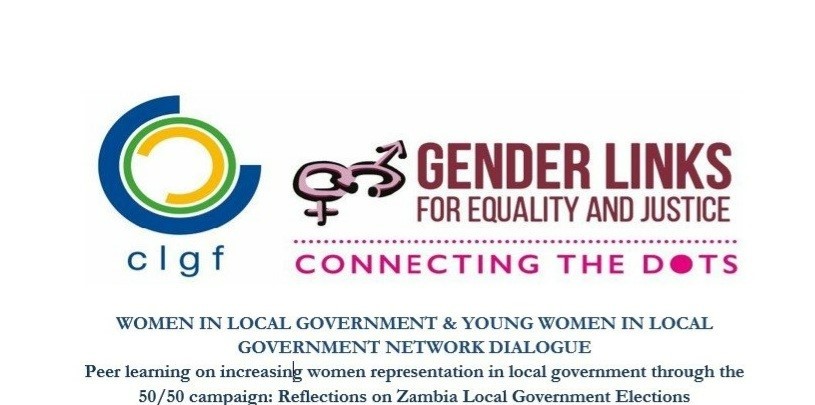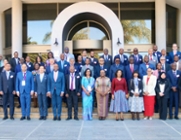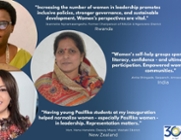Learning the lessons: women's political empowerment in Southern Africa

08 September 2021
As the Connecting the Dots project to empower women in Southern Africa, politically and economically, nears its end, this month sees a number of key webinars to take stock of some of the lessons learned. This began with a webinar on the efforts to see more women politicians.
Empowering women
The project, a joint venture of CLGF and partners, Gender Links, is funded by UK Aid through the Jo Co Memorial Fund. It seeks to look at ways to support women in Eswatini, Lesotho, Zambia and Zimbabwe, to bring about more gender equity in terms of political representation and entrepreneurship.
To achieve this, several networks have been created in each of the four countries: Women in Local Government, Young Women in Local Government and Women in Local Economic Development. The first of these events brought together members of the women in local government networks, with a peer-learning focus to share experiences of the 50/50 campaign.
CLGF Secretary-General, Ms Lucy Slack, welcomed the event and explained the importance of being able to learn from the rich experiences across the region, as we work towards gender equity in politics and 50/50 representation. 50/50 is the name of campaign to narrow the gap in gender politics locally.
Fear of intimidation
The newly elected Mayor of Lusaka, Chilando Chitangala, reported a disappointing result in women’s representation in the recent elections. She emphasised how hard it was for a woman to launch a campaign. It takes money to stand for election and a great deal of resolve in the face of hostility, having been advised to avoid certain activities by her team, for fear of violence.
Eswatini councillor, Bongile Mbingo, gave some very practical advice and talked about the importance of ensuring you understand your community and your environment from the very outset of standing for election. You need to start your campaign early so you can also encourage people to vote. if they are not registered, or eligible to vote. She warned that social media could be damaging as well as helpful, and it was therefore important to understand how it works. As well as introducing a politican to an audience, social media can also be an effective tool for information sharing. Her final point was about the need for integrity, warning that integrity is ‘not an event, but a life activity.’
Engage political parties
Cllr Manoosi Khetsi from Lesotho agreed on the benefits of using social media platforms during campaigning to reach more people and let them know who you are and what you stand for. She stressed the great need to engage with the political parties; they are very influential and it is important to get them on-side and to understand the need and issues around equal representation of women in local politics.
Another unanimous point was that women need to see women in senior roles and positions of power.
Positive picture in Zimbabwe
The picture in Zimbabwe is more positive with the President agreeing to a specified quota for women local government politicians, of 30% at the local government level, an important step to making the 50/50 gender representation more achievable.
There was agreement in the benefit of the networks in providing a platform to help women address the issues and look at ways of tackling gender-based violence and intimation which is so prevalent during elections. Many made the point that it is crucial to emphasise that local government politics is not just for men, there is a clear role for women in both the planning and decision making stages. Women make up at least half the members of a community and their needs, experiences and expertise are crucial to forging successful and inclusive places to live.
Work of the women's networks continues
Although there has not been an increase in gender representation at the local level in Zambia, the webinar revealed a clear appetite to continue with the networks and the work that has been started. Although the project officially ends later this month, the Women and Young Women in Local Government networks in each of the four countries has raised the profile of gender equity and also the motivation to make a difference.
Back to News





